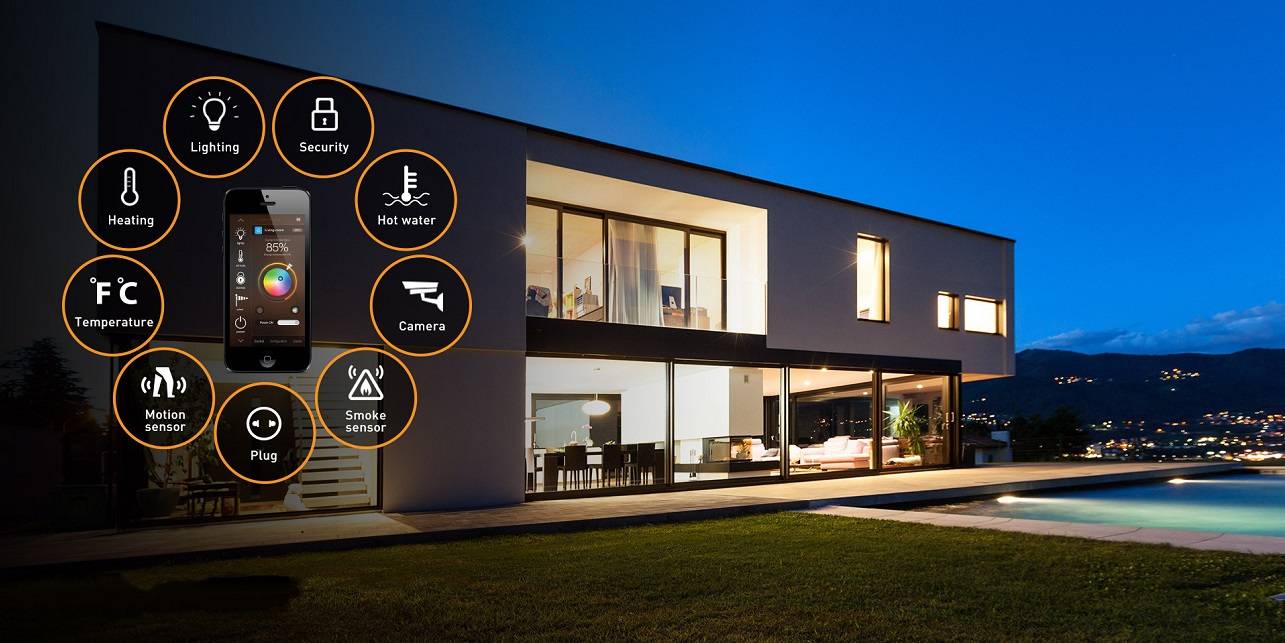The concept of smart homes has gained significant momentum in recent years, offering homeowners a new level of convenience, comfort, and energy efficiency. By integrating advanced technology and automation, smart homes are transforming the way we live and interact with our living spaces. This article explores the diverse benefits and applications of smart home technology, focusing on how it enhances lifestyle and promotes energy efficiency.
1. Enhanced Convenience and Comfort:
Smart homes provide unparalleled convenience by automating various tasks and allowing homeowners to control their living environments with ease. From remotely adjusting thermostat settings and managing lighting to controlling home security systems and appliances, smart home technology puts the power in homeowners' hands. Voice-activated assistants and smartphone applications make it effortless to manage and customize settings, offering a seamless and personalized living experience.
2. Energy Management and Efficiency:
One of the significant advantages of smart homes is their ability to optimize energy consumption and promote energy efficiency. Smart thermostats enable homeowners to regulate heating and cooling based on occupancy and preferences, reducing energy waste and lowering utility bills. Energy monitoring systems provide real-time data on energy usage, empowering homeowners to identify areas of high consumption and make informed decisions to reduce their environmental impact.
3. Lighting Control and Ambiance:
Smart lighting systems allow homeowners to create customized lighting scenes and schedules, enhancing ambiance and energy efficiency. With the ability to control lights remotely, homeowners can ensure that lights are turned off when not needed, reducing unnecessary energy consumption. Additionally, smart lighting can be programmed to mimic natural lighting patterns, promoting a healthier circadian rhythm and optimizing energy usage.
4. Home Security and Surveillance:
Smart home technology has revolutionized home security and surveillance systems. Homeowners can monitor their properties remotely through connected security cameras and receive real-time alerts in case of suspicious activity. Integration with smart locks allows for remote access control, ensuring that homes are secure even when homeowners are away. These advanced security features provide peace of mind and enhance the overall safety of residents.
5. Appliance Automation and Energy Savings:
Smart home technology enables the automation and control of household appliances, resulting in significant energy savings. Smart plugs and power strips allow users to schedule and control the operation of devices, preventing energy waste from devices left in standby mode. Smart appliances, such as refrigerators and washing machines, optimize energy consumption based on usage patterns and energy tariffs, further reducing energy costs and environmental impact.
6. Voice-Activated Assistants and Smart Integration:
Voice-activated assistants, like Amazon Alexa and Google Assistant, serve as central hubs for controlling various smart home devices. Homeowners can use voice commands to adjust settings, play music, answer questions, and control other connected devices. Smart integration allows different devices to communicate and work together, creating a seamless and intuitive smart home experience.
7. Aging in Place and Assisted Living:
Smart home technology offers significant benefits for the elderly and individuals with mobility challenges. Connected sensors and smart monitoring systems can detect falls, monitor vital signs, and send alerts to caregivers or emergency services. Automated lighting and voice-activated controls make daily tasks more accessible, allowing individuals to maintain their independence and age in place comfortably.
8. Environmental Sustainability:
Smart homes contribute to environmental sustainability by promoting energy-efficient practices and reducing carbon footprints. By optimizing energy consumption, homeowners can significantly reduce greenhouse gas emissions and contribute to a greener future. Additionally, smart homes often incorporate renewable energy sources, such as solar panels, allowing homeowners to generate clean energy and further reduce reliance on the grid.
Smart homes have revolutionized the way we live, offering convenience, comfort, and energy efficiency. By integrating advanced technology, automation, and connectivity, smart homes enhance lifestyle while promoting environmental sustainability. From energy management and enhanced security to personalized ambiance and assisted living features, smart home technology continues to evolve, providing homeowners



No comments yet
Be the first to share your thoughts!